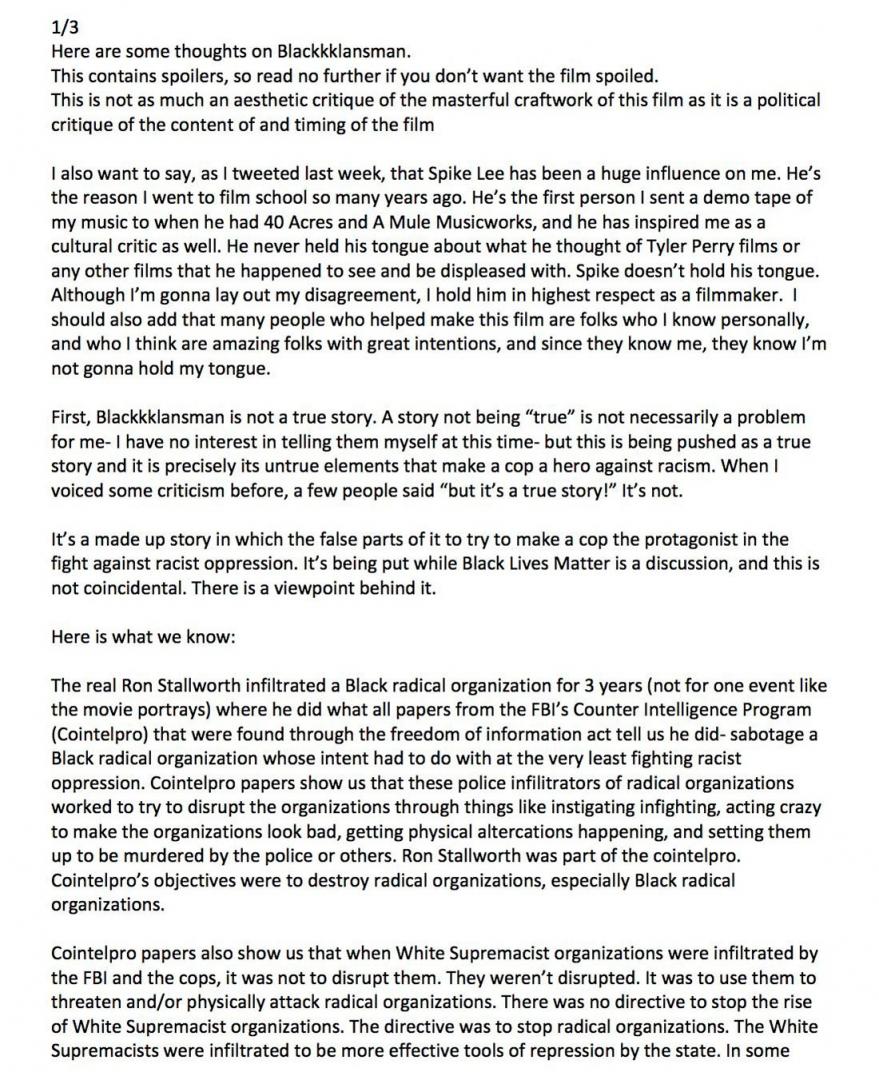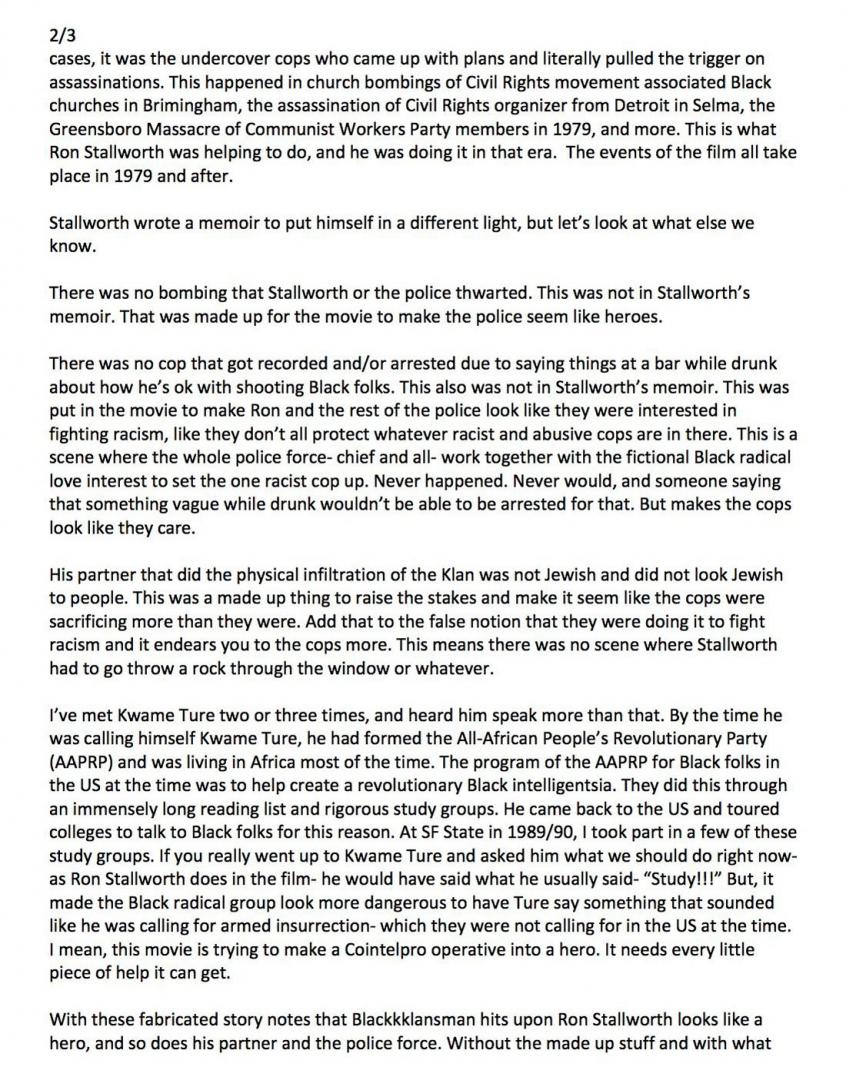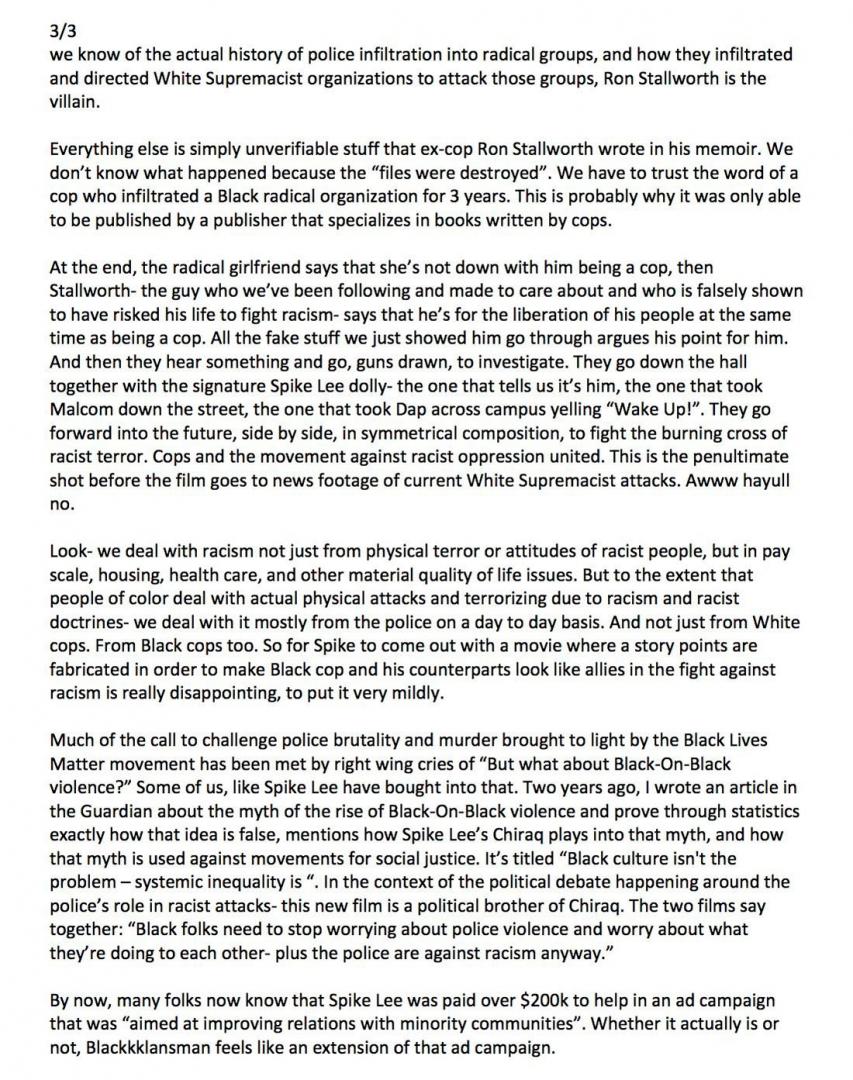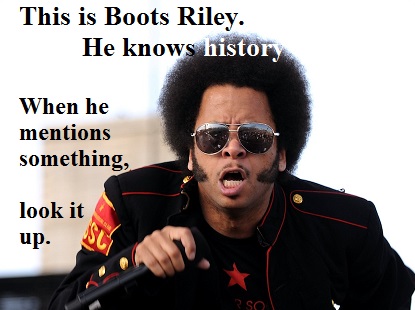
Two weeks ago, musician and filmmaker Boots Riley dropped a rather hard critique of Spike Lee's Black Klansman. I've hesitated to get involved in an online controversy between two black filmmakers. I'm white and I don't make films. As a jump further into disclaimer world, I've met and talked Boots Riley on multiple occasions in 2011 during Occupy Oakland. I found him to be very nice and exceedingly well educated when it comes to left history. If there were a leftist version of trivial pursuit, I would have many pie slices. Boots Riley wrote the cards. I've never met or talked with Spike Lee. I have not seen either person's movie yet. This makes me a bad guy.
Riley's takedown of Black Klansman could have gone much further in any number of directions. He was holding back out of admitted respect for Lee. The critique was also three pages long and I've included it at the bottom of this article so that the reader can hear Riley speak for himself. I have chosen instead to extend two snippets of his essay and show the reader some history, add some personally history and put some context in. Riley did not include a bibliography for filmography with his essay, which was an error. As left wing people, we tend to forget how much history has been not suppressed directly, but left undiscussed and out of the continuing narrative of where we find ourselves today.
Riley mentions COINTELPRO on the very first page. He mentions this by referencing Cointelpro papers and explaining what they show. He was not explicit in explaining what COINTELPRO or the Cointelpro papers were. He assumed the reader had a passing knowledge of this chapter of American history. Many readers do not, and because he was not explicit in it the mass media was able to gloss over this part of the critique and zero in to fact check the actual Stallworth story as movie and fact, rather than look at the facts in a context that was rooted in the immediate history of both that time and ours.
The FBI's Counter-Intelligence Program (which is what COINTELPRO is short hand for) ran from 1956 to 1971 under that name. The FBI infiltrated, spied on, attacked, and disrupted groups using tactics up to and including assassination since at least the 1920s. These activities continued after a group of activists broke into the FBI field office in media in 1971 and released over 1000 pages of documents that only the Washington Post would print at first. A post-Watergate senate committee called the Church Committee revealed more in 1976. These events led to a deluge of Freedom of Information Act requests as Riley noted. Those FOIA requests led to a stack of books and several movies. It would have been wonderful if Riley had suggested a selection of titles in his essay as I'm curious to see what those suggestions would be.
COINTELPRO has continued through many names and well past 1971 or 1976. It was ongoing in 1979 and is what caused the Greensboro Massacre. I'll pick that event because I remember seeing it happen on live television as a child. On that November day the Klan attacked an anti-Klan demonstration while the all the cops in the entire city were on a 20 minute break. Five organizers were killed, others were wounded with one permanently disabled. Four were medical doctors and all five were union organizers in Duke Hospital or the textile mills. The video above is that event. The pictures below show FBI informant Dawson and ATF agent Bernard Bukolvich at the scene. They were taken from the video above. Both helped to plan the assassinations and neither suffered a consequence.
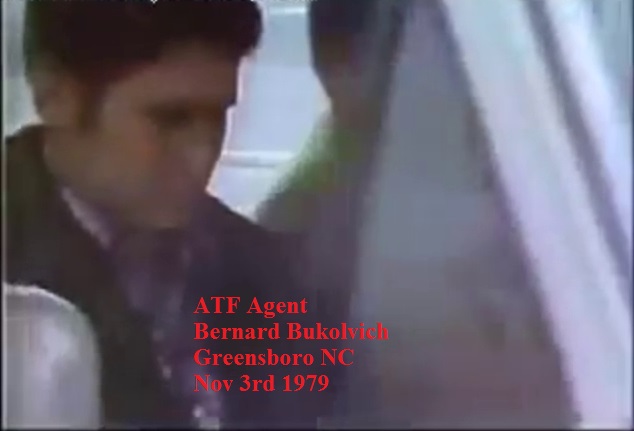
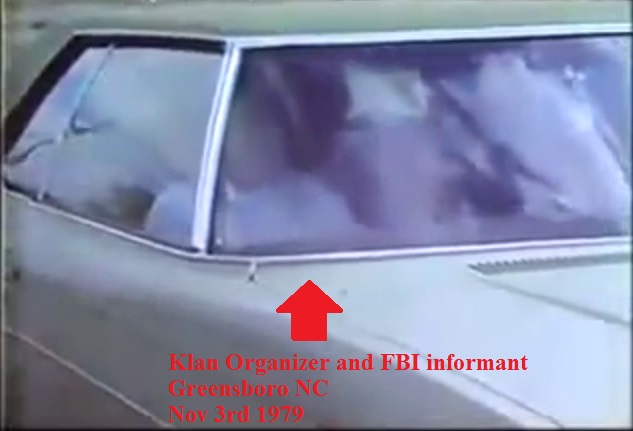
The constant legal and illegal repression continues to this day. As Riley pointed out, acts such as these, although sanitized and recast as “the police are your friends” in Black Klansman, continued through the time period an are happening now today as we speak. Had Riley been more direct the mainstream media would have refereed to his essay as a rant and never engaged with it's actual content. What content they did engage with is the truthfulness of the actual movie as opposed to Stallworth's self-serving memoir or the actual events.
Based on a true story does not mean true story. True story does not mean whole story. This whole story is a tapestry of stories. Lee's movie is a small part of a tiny thread in that tapestry. It has been redyed red, white and blue to help depict a different scene as Riley noted when describing Spike Lee's relationship with the NYPD.
Attempting to clean it's image is something the NYPD does often. Their image is not pretty and they do not do a good job of cleaning it. This is mostly because their predominant interaction with the public is to give orders or ask questions while passing out a beating. Prior to handing Spike Lee $200,000 to make them look good they attempted to use social media to promote themselves. They failed spectacularly and the mainstream media tried to evoke sympathy as though they were victims. It's worth reviewing in all it's craptastic glory.
Boots Riley's essay is included below, and it should be read. After it gets read, it should be researched. The reader will find themselves in a world that exists adjacent to the one they are already in, a world that is rich in history that neither Riley's words nor my own can fully explain in a single sitting, indeed a lifetime of study will not reveal it all. Please do Riley's words and the survivors some small justice and educate yourselves to the limit of what you can bear to know.
